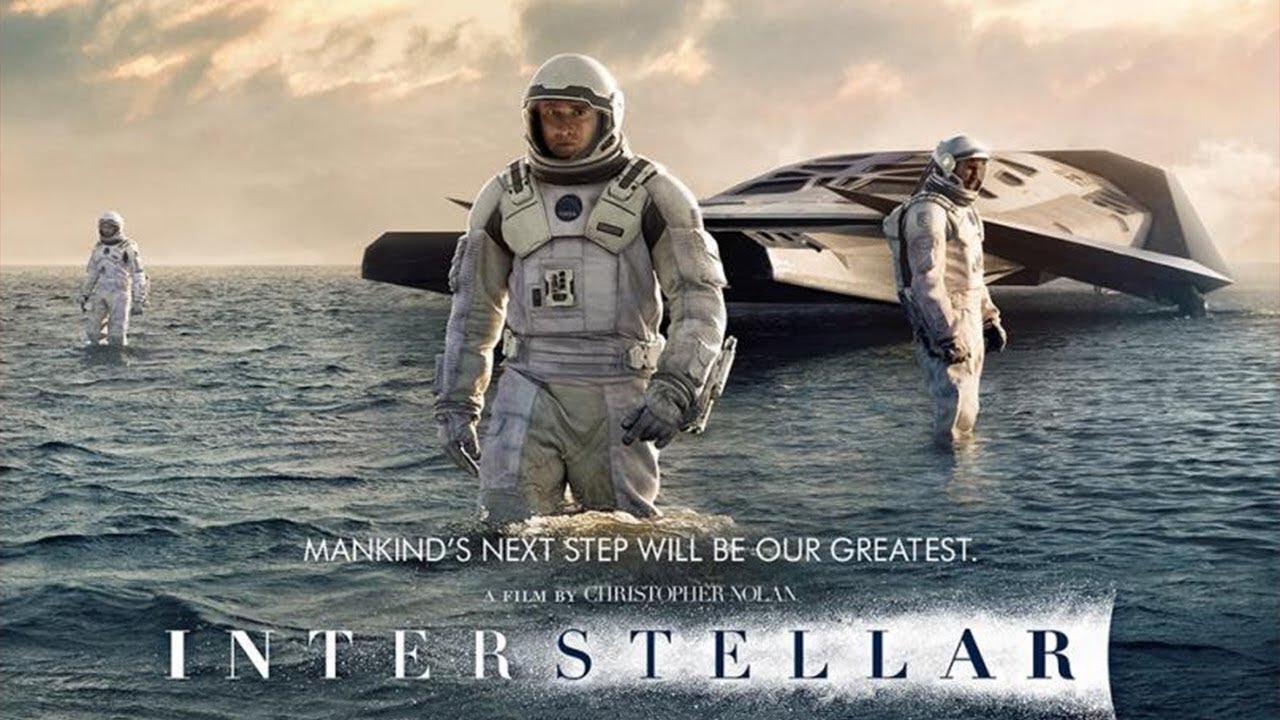Interstellar (2014)

“Interstellar,” directed by Christopher Nolan and released in 2014, is a groundbreaking science fiction film that delves into the complexities of space exploration, time, and the enduring power of love. With a stellar cast including Matthew McConaughey, Anne Hathaway, Jessica Chastain, Timothée Chalamet, and Michael Caine, the film weaves a richly layered narrative that challenges viewers to contemplate humanity’s place in the universe. Through its stunning visuals, thought-provoking themes, and emotional depth, “Interstellar” stands as a landmark achievement in modern cinema.
The film is set in a dystopian future where Earth is facing ecological collapse, rendering it increasingly uninhabitable. As humanity grapples with dwindling resources and a dying planet, a group of astronauts embarks on a mission to find a new home for mankind. The central character, Cooper, portrayed by Matthew McConaughey, is a former NASA pilot who is called back into action to lead this perilous journey. The premise of the film is built upon the foundation of real scientific theories, particularly those related to black holes, wormholes, and the theory of relativity, making it a unique blend of science fiction and scientific inquiry.
From the outset, “Interstellar” establishes a profound emotional connection through the relationship between Cooper and his daughter, Murph, played by Jessica Chastain as an adult and McKenzie Foy as a child. Their bond serves as the emotional core of the film, driving Cooper’s motivations and decisions throughout the narrative. The film artfully contrasts the vastness of space with the intimate human experience, showcasing how love and personal relationships endure even in the face of insurmountable challenges. This theme resonates deeply, reminding viewers that the connections we forge are as significant as the cosmic questions we seek to answer.
As the astronauts journey through a wormhole near Saturn, they are thrust into uncharted territories of the universe. The film’s visual effects are nothing short of breathtaking, depicting stunning planetary landscapes, the enigmatic beauty of black holes, and the awe-inspiring vastness of space. Cinematographer Hoyte van Hoytema’s work, combined with Hans Zimmer’s haunting score, creates an immersive experience that transports audiences to the furthest reaches of the cosmos. The depiction of the black hole, Gargantua, is particularly remarkable, showcasing a visually stunning representation of gravitational forces and the bending of light.
The film’s exploration of time is one of its most compelling aspects. The narrative illustrates how time functions differently in various gravitational fields, leading to profound consequences for the characters. One of the most poignant scenes occurs on the water planet, where the astronauts experience severe time dilation, resulting in years passing on Earth while only hours elapse for them. This concept not only serves to heighten the stakes of their mission but also underscores the emotional weight of Cooper’s absence from his family. The film masterfully illustrates the relativity of time, forcing viewers to confront the emotional toll that the pursuit of knowledge and survival exacts on human relationships.

Christopher Nolan’s direction is characterized by its ambition and attention to detail. The film tackles complex scientific concepts while maintaining a focus on character-driven storytelling. Each member of the crew, including Amelia Brand (Anne Hathaway) and Romilly (David Gyasi), brings unique perspectives to the mission, contributing to the film’s exploration of teamwork and collaboration in the face of adversity. The character development is nuanced, showcasing how each astronaut grapples with their own fears, hopes, and sacrifices.

As the narrative unfolds, the film delves into philosophical questions about humanity’s future, the nature of existence, and the drive to explore the unknown. “Interstellar” grapples with the idea of survival—not just of the human race, but of love and connection. It poses challenging questions about what it means to be human and the lengths to which we will go to preserve our legacy. The film culminates in a powerful resolution that ties together its various themes, including the significance of hope and the idea that love transcends time and space.

In conclusion, “Interstellar” is a monumental achievement in science fiction filmmaking. Through its breathtaking visuals, rich storytelling, and profound exploration of love and time, the film captures the essence of what it means to be human in an expansive universe. Christopher Nolan’s masterful direction, coupled with exceptional performances from a talented cast, creates a cinematic experience that is both intellectually stimulating and emotionally resonant. “Interstellar” invites viewers to ponder the mysteries of the cosmos while reminding us of the enduring power of human connection, making it a timeless exploration of our place in the universe.











